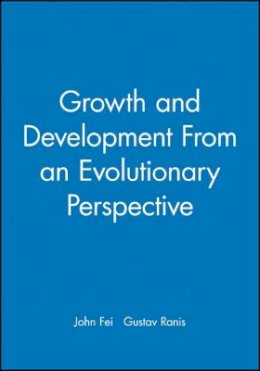
Stock image for illustration purposes only - book cover, edition or condition may vary.
Growth and Development from an Evolutionary Perspective
John Fei
€ 142.81
FREE Delivery in Ireland
Description for Growth and Development from an Evolutionary Perspective
Hardcover. Traces the evolution of development theory from the Physiocrats and the classical School to Solow, Lewis, and Lucas and Roemer. This book identifies the policy implications of the development process, comparing East Asian with Latin American cases. It demonstrates how political economy factors suggest and enhanced endogenization of policy choices. Num Pages: 480 pages, 0. BIC Classification: GTF; KCM. Category: (P) Professional & Vocational; (UP) Postgraduate, Research & Scholarly; (UU) Undergraduate. Dimension: 236 x 160 x 31. Weight in Grams: 798.
The central purpose is to borrow and on occasion adapt the various tool kits offered to improve our current understanding of the development process which we see, in Simon Kuznets' terminology, as a transition from agrarianism to modern economic growth
The central purpose is to borrow and on occasion adapt the various tool kits offered to improve our current understanding of the development process which we see, in Simon Kuznets' terminology, as a transition from agrarianism to modern economic growth
Product Details
Format
Hardback
Publication date
1997
Publisher
John Wiley and Sons Ltd United Kingdom
Number of pages
480
Condition
New
Number of Pages
480
Place of Publication
Hoboken, United Kingdom
ISBN
9781557860798
SKU
V9781557860798
Shipping Time
Usually ships in 7 to 11 working days
Ref
99-50
About John Fei
John C. H. Fei was formerly Chairman of the Board at the Chung Hua Institute of Economic Research in Taipei, Taiwan. Co-author of five books and more than 75 articles, Fei also served as consultant to organizations such as AID, NPA, UNDP and the National Science Council of Taiwan. A Ph.D. from Massachusetts Institute of Technology, he taught at Cornell ... Read more
Reviews for Growth and Development from an Evolutionary Perspective
"The really attractive thing about this book is that it discusses economic development in an evolutionary perspective, with a very detailed catalog of ideal types, but always in a unified theoretical framework. The student will learn a lot about historical development paths, and even more about economic theory." Robert M. Solow, Massachusetts Institute of Technology
